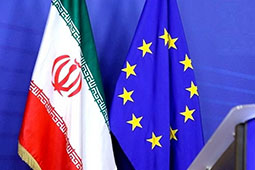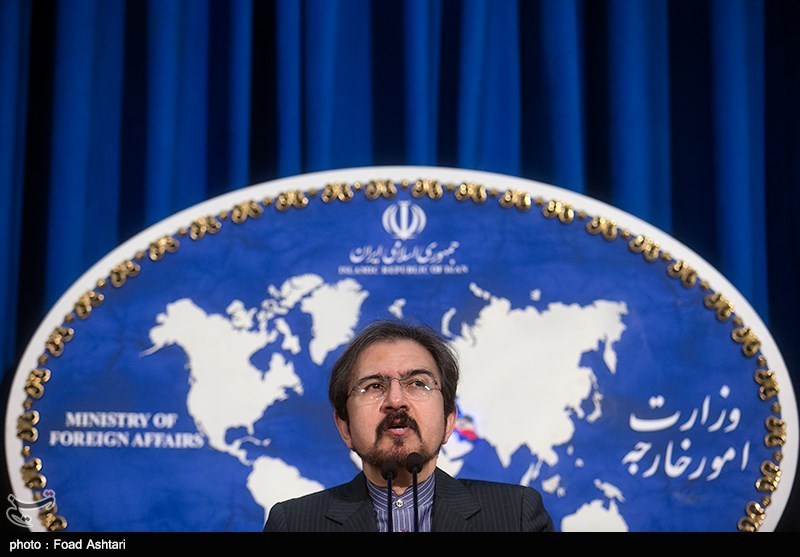
Iranian Spokesman Laments EU’s Delay in Implementing INSTEX


Speaking to reporters at his weekly press conference in Tehran on Monday, Qassemi pointed to the US pressures on the EU and said Washington is opposed to the continuation of Tehran-Europe relations.
“Unfortunately, we have not achieved the necessary results in this mechanism (the INSTEX), and there is a slowdown in this,” he said, adding, “We expect Europe to implement this mechanism.”
“We have told them (Europeans) that the patience of the Iranian people is limited and that they should proceed as quickly as possible,” the spokesman went on to say.
Qassemi further referred to the EU’s preconditions for the implementation of its commitments, including Iran’s accession to the Financial Action Task Force (FATF), saying that the JCPOA commitments of the EU have nothing to do with the FATF and the EU cannot set conditions for the Islamic Republic.
On February 4, Council of the European Union issued a conclusion on the Islamic Republic, urging Iran to “adopt and implement the necessary legislation pursuant to its commitments under the Financial Action Task Force (FATF) Action Plan.”
The EU also voiced readiness to “continue cooperation with Iran in these areas, including by providing technical assistance for the implementation of the FATF Action Plan.”
Earlier on the same day, Iranian Judiciary Chief Ayatollah Sadeq Amoli Larijani stressed that the country would never accept the “humiliating conditions” of the European Union’s financial mechanism for trade with Iran, including Iran’s accession to FATF.
“The European countries have reportedly set two ‘strange conditions’ for the mechanism named the INSTEX,” the top judge deplored, saying, “The countries should be aware that Iran will by no means accept these humiliating conditions and will not accede to any demand at the expense of opening a small waterway such as INSTEX.”
INSTEX will be based in Paris and be managed by a German banking expert. Britain will head the supervisory board.
The European countries are reportedly going to use the channel initially only to sell food, medicine and medical devices in Iran.
In May 2018, the US president pulled his country out of the JCPOA, the nuclear deal that was achieved in Vienna in 2015 after years of negotiations among Iran and the Group 5+1 (Russia, China, the US, Britain, France and Germany).
Following the US exit, Iran and the remaining parties launched talks to save the accord.


Trump weighs using $2 billion in CHIPS Act funding for critical minerals

Codelco cuts 2025 copper forecast after El Teniente mine collapse

Electra converts debt, launches $30M raise to jumpstart stalled cobalt refinery

Barrick’s Reko Diq in line for $410M ADB backing

Abcourt readies Sleeping Giant mill to pour first gold since 2014

Nevada army depot to serve as base for first US strategic minerals stockpile

SQM boosts lithium supply plans as prices flick higher

Viridis unveils 200Mt initial reserve for Brazil rare earth project

Tailings could meet much of US critical mineral demand – study

Kyrgyzstan kicks off underground gold mining at Kumtor

Kyrgyzstan kicks off underground gold mining at Kumtor

KoBold Metals granted lithium exploration rights in Congo

Freeport Indonesia to wrap up Gresik plant repairs by early September

Energy Fuels soars on Vulcan Elements partnership

Northern Dynasty sticks to proposal in battle to lift Pebble mine veto

Giustra-backed mining firm teams up with informal miners in Colombia

Critical Metals signs agreement to supply rare earth to US government-funded facility

China extends rare earth controls to imported material

Galan Lithium proceeds with $13M financing for Argentina project

Kyrgyzstan kicks off underground gold mining at Kumtor

Freeport Indonesia to wrap up Gresik plant repairs by early September

Energy Fuels soars on Vulcan Elements partnership

Northern Dynasty sticks to proposal in battle to lift Pebble mine veto

Giustra-backed mining firm teams up with informal miners in Colombia

Critical Metals signs agreement to supply rare earth to US government-funded facility

China extends rare earth controls to imported material

Galan Lithium proceeds with $13M financing for Argentina project

Silver price touches $39 as market weighs rate cut outlook

















